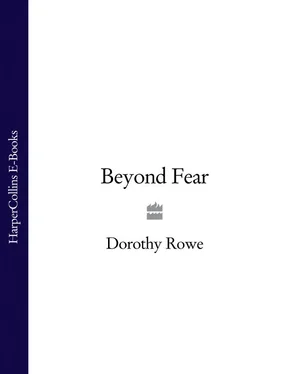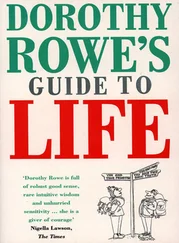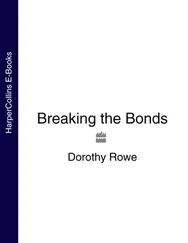For most psychiatrists and psychologists, DSM diagnoses function as a security blanket, saving them from having to confront the messiness of life and its great uncertainties. Diagnoses also allow them to see other people, not as agents, but as puppets. The theories which picture people as puppets are about behaviour being the outcome of the actions of genes, biochemistry, disorders, traits, or the movements of the planets. Such theories are far removed from what we actually do. Neuroscientists have now put beyond doubt the fact that we cannot see reality directly but know only the constructions of our brain which come from our past experience. Developmental psychologists who understand this have applied this knowledge to their studies of babies and toddlers, and have shown that babies are born, not as passive puppets, but as agents, eager to make relationships and to act on their world.
Since no two people ever have the same experience, no two people ever see anything in exactly the same way. What determines our behaviour is not what happens to us but how we interpret what happens to us. In every moment of our life we are engaged in interpreting what is going on. We are, in effect, meaning-creating creatures. This is what it is to be human.
All the meanings we create form a kind of structure, and out of this structure comes our sense of being a person. Because we cannot see reality directly, every interpretation we make is a guess about what is going on. Thus, what we experience as ‘I’, ‘me’, ‘myself’ is a set of guesses about ourselves and our world. Our guesses are also predictions. When we find that our predictions are proving to be reasonably accurate we feel secure. However, the world can often surprise us, not always in pleasant ways, and when this happens some of our ideas fall apart. This is a very common experience. Unless we know that what we are experiencing is a necessary collapse of our ideas, we feel ourselves to be falling apart. If we are full of self-confidence we can say to ourselves, ‘I’ve got through things like this before and I’ll do so again,’ but, if we lack all self-confidence, we feel that our very self is crumbling, shattering, even disappearing. We feel a terror greater than our fear of death. Facing death, we can tell ourselves that some important part of ourselves will continue on, perhaps our soul or spirit, or the memories others have of us. Facing the annihilation of our sense of being a person, we feel that we are about to disappear like a wisp of smoke in the wind. In such terror we can resort to those desperate defences which psychiatrists call mental disorders. They are not illnesses but defences which serve to hold us together when we feel ourselves falling apart. We can relinquish these defences once we come to understand that what is falling apart is not our self but some of our ideas. These ideas must fall apart so we can build new ones that better reflect what is going on in our life. We are not puppets, victims of our genes, traits, or star signs, but agents, interpreting our world, making decisions and acting on our world.
If we do not value and accept ourselves, if we believe that our ideas about ourselves and our world are absolute truths, and if we try to force the world to be what we want it to be, we will be unhappy. If we value and accept ourselves, if we know that everything we know is but a set of ideas which we can choose to change, and that our ability to change the world in the way we want is extremely limited, we will be able to survive the worst that life can throw at us. There is a good chance that sometimes we will be happy.
Fear and the Fear of Fear
Chapter One The Nature of Fear
Fear comes to us in many guises. It can come as a shiver in the delight of anticipation; or as the drenching, overwhelming, annihilating terror known by the inadequate names of existential anxiety or dread. It can come suddenly, life-savingly, in situations of danger, when it is known purely as fear; or it can gnaw away endlessly with little apparent cause, and we call it anxiety; or it can come with a sense of having the eyes of the world upon us when we are naked and alone, and we call it shame; or it can loom darkly, threatening punishment, and we call it guilt.
Fear, like death, is the great unmentionable. We maintain a conspiracy of silence so as to pretend we are not afraid. In the aftermath of great physical danger or terrible disaster everyone claims that everyone was brave and no one panicked. In 1985, when I was living in Sheffield and writing this book, at nearby Manchester airport a British Airways plane loaded with holidaymakers caught fire as it was about to take off. Those passengers who survived spoke of terror and panic and the rush for the exits as smoke filled the rear of the plane, but they soon ceased to be reported in the newspapers as other people, important people who were not aboard the plane, made their statements commending the passengers for their bravery. These important people would have had us believe that everyone aboard that plane acted with courage and decorum. Yet would not anyone, trapped in the narrow space of a crowded plane, watching the flames and breathing the acrid smoke, feel afraid and try desperately to escape?
Sixteen years on and another, even more immense, tragedy occurred in New York on 11 September 2001. Across the world millions of people watched the television pictures of these events that day and over the next few days. We saw how again fear became the great unmentionable. When the two planes flew into the World Trade Center and the buildings collapsed, television crews filmed and interviewed some of the people who had escaped death. These people showed their fear and spoke about it, and such interviews were repeated in news bulletins later that day and evening, but by the next day such interviews had disappeared from our television screens. They were replaced by stories about the bravery of the firefighters and other rescue workers. The courage of the Mayor of New York, Rudy Giuliani, was praised, as was the courage of Americans generally. By then Americans had turned to patriotism and religion. The symbol of the USA, the Stars and Stripes, became a badge of courage and determination, while churches, synagogues and mosques were overflowing with worshippers. Americans were still afraid, very afraid, but this fear could not be mentioned.
The memory of such fear can stay with us for the rest of our lives, leaving us unable to enter any place which will remind us of our fear, or returning in dreams of terror when we find ourselves re-enacting, helplessly, the scenes where we once successfully escaped destruction. Some people, to give themselves freedom to go and do what they wish, put themselves through the painful process of therapy, in the hope that relearning a skill or talking about the events will remove the fear, and with that the shame of being afraid. Most people, however, adapt their lives to avoid certain situations and activities, by never entering an enclosed space or flying again, or they fog their sleeping brains with drugs to blot out dreams, or become what is known as ‘a light sleeper’, someone who is often awake while others sleep. They invent all sorts of excuses for not doing certain things - proneness to illness, or allergies, logical reasons for following one course of action rather than another - all to hide the fact that they are afraid. They must do this because they know, correctly, that to be afraid is to be scorned.
The fear we feel when faced with an external danger - fire or flood or a terrorist bomb - is bad enough, but what is far, far worse is the fear we feel when the danger is inside us. When the danger is outside us we know that at least some people will understand how we feel, but when the danger is inside us, when we live our lives in a sweat of anxiety, shame and guilt, we find ourselves in the greater peril that if we tell other people about our fear they will think that we are weak, or, worse, mad. So we take drugs to drown our fear and maintain the conspiracy of silence.
Читать дальше












